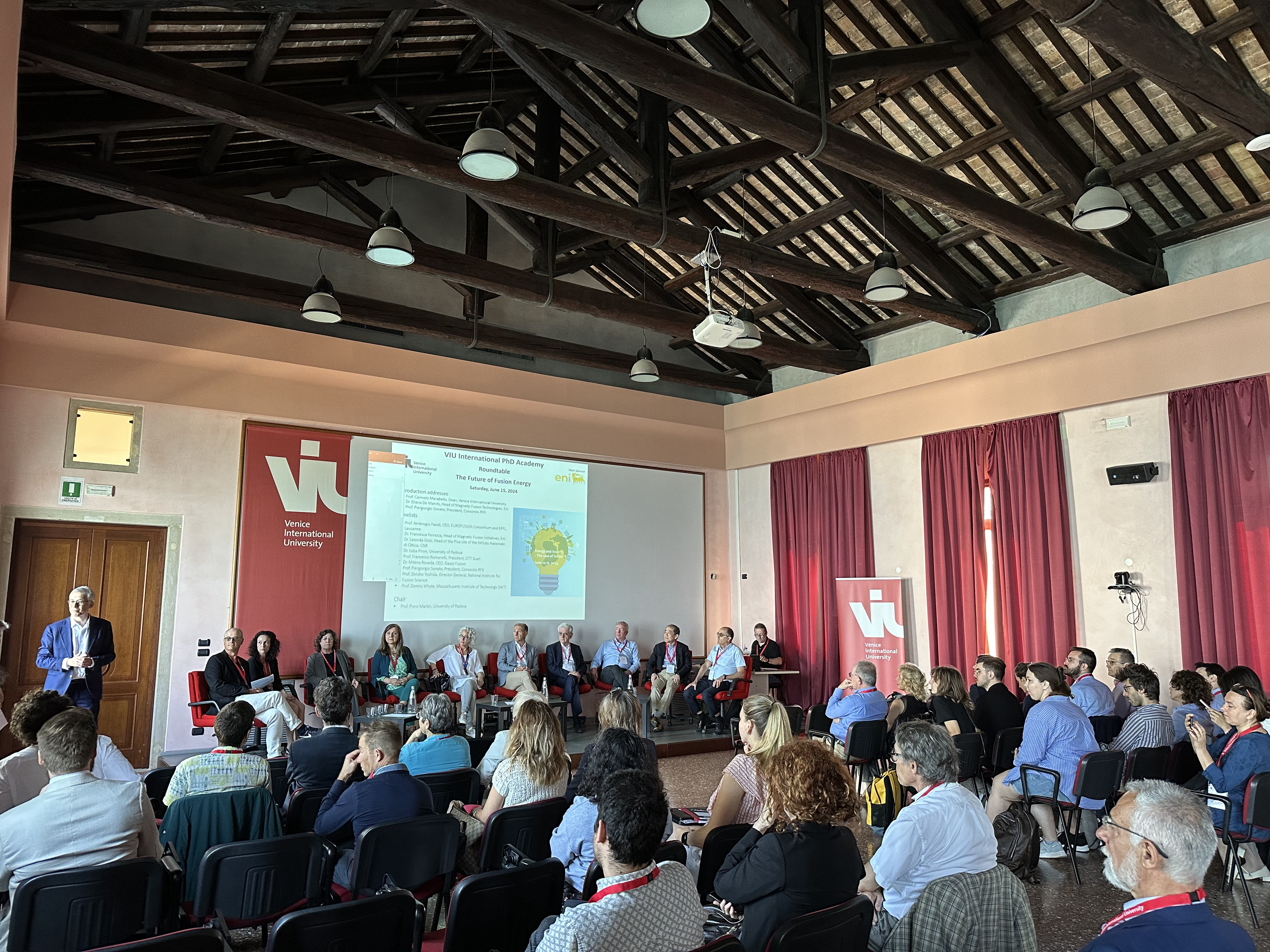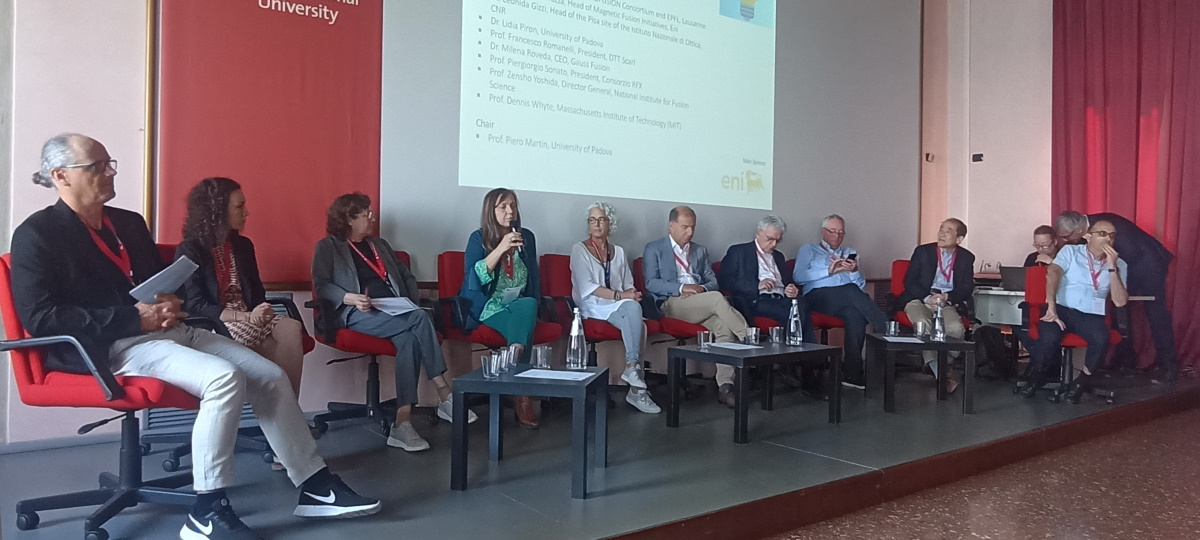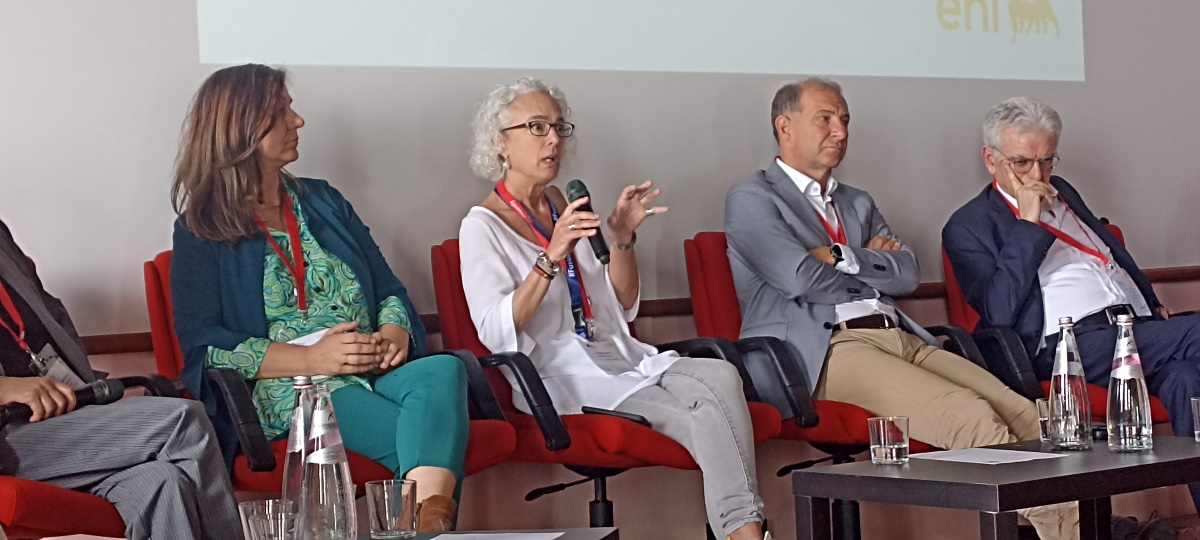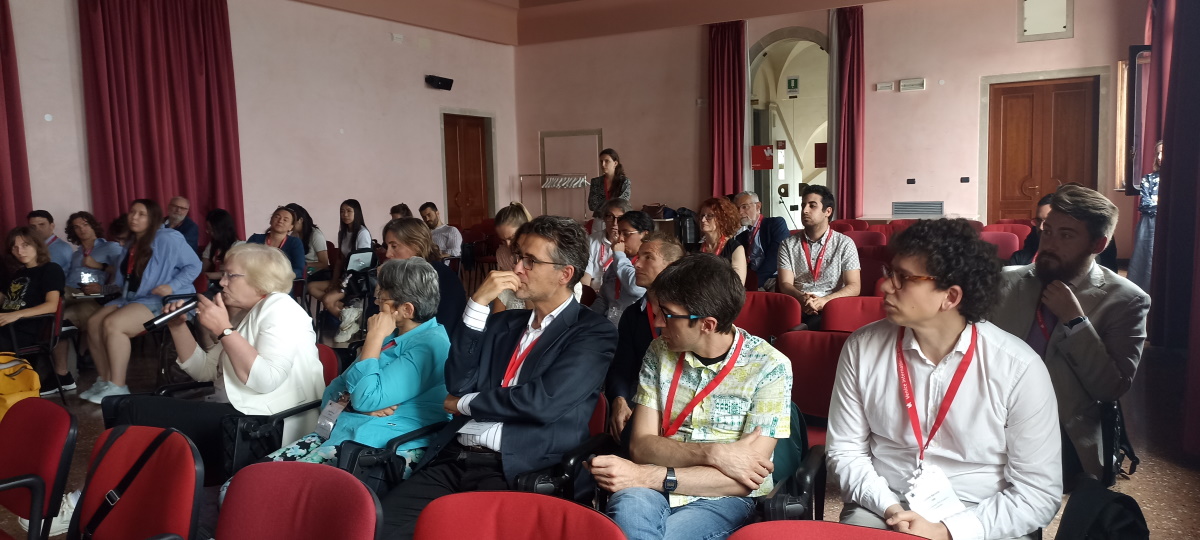The round table "The Future of Fusion Energy" was held in Venice on June 15 at Venice International University (VIU). Some of the leading experts and scholars in the field of fusion energy participated, with the scientific contribution of Eni, the main sponsor of the initiative.
The meeting represented the high point of the PhD Academy entitled "Energy and Society. The case of fusion", aimed at PhD students that VIU organized from June 10 to June 14. The scientific program of the PhD Academy was coordinated by scholars from the Universities of Padua, Milan-Bicocca, and the Universities of Bordeaux and Ljubljana and was aimed at 20 students selected by VIU member universities.
In recent months, there has been a lot of talk about fusion energy. Replicating this process, which powers the sun, is the focus of intense studies in many laboratories around the world, with the aim of producing electricity free of greenhouse gas emissions, with a safe and virtually inexhaustible process, contributing significantly to the energy transition.
This initiative aimed to explore the role of fusion in future energy scenarios, and to analyze the scientific and technological developments of the energy transition, together with social, economic, cultural and ethical considerations. The search for solutions for a sustainable energy future requires a multidisciplinary approach, where the synergy between science, humanities, economics and social sciences is essential.
During the round table, moderated by Piero Martin of the University of Padua, scientific coordinator of the PhD Academy, the invited audience was able to discuss and dialogue with some of the leading international experts in the field of thermonuclear fusion, including:
- Prof. Ambrogio Fasoli, CEO of the EUROfusion Consortium and lecturer at EPFL Lausanne
- Dr. Francesca Ferrazza, Head of Magnetic Fusion Initiatives at Eni
- Dr. Leonida Gizzi, director of the Pisa site of the National Institute of Optics, CNR
- Dr. Lidia Piron, University of Padua - Prof. Francesco Romanelli, President of DTT Scarl - Dr. Milena Roveda, CEO of Gauss Fusion
- Prof. Francesco Romanelli, President of DTT Scarl
- Dr. Milena Roveda, CEO of Gauss Fusion
- Prof. Piergiorgio Sonato, President of the RFX Consortium
- Prof. Zensho Yoshida, Director General of the National Institute for Fusion Science
- Prof. Dennis Whyte, Massachusetts Institute of Technology (MIT)
The discussion began with an introduction from Prof. Martin's in which he shared that just a few hours earlier, the final statement of the G7 meeting held in Torre Egnazia, Apuglia had been made public. That statement states that “Fusion energy technology has the potential to provide a lasting effect solution to the global challenges of climate change and energy security”. G7 leaders commit to promote "international collaborations to accelerate the development and demonstration of fusion plants to foster private investments and public engagement” and announce that Italy and the International Atomic Energy Agency have decided to host the inaugural ministerial meeting of the "World Fusion Energy Group” in Rome.
Starting from this positive news, the participants discussed with each other, with the students and with the public on the strategies and timing for the realization of the merger, on the European and international scene and on the role of the interaction between public and private research in accelerating the realization of this form of power. The participants discussed DTT, the great experiment under construction in Frascati thanks to a partnership between
Enea and Eni and various Italian research and academic institutions, which will become one of the points of reference world level.
Particular interest was paid to the issues of interaction between energy and society.
The event was an important opportunity for dialogue and discussion on the future prospects of fusion energy, and a unique opportunity to better understand the developments and challenges of this revolutionary technology.
--
The PhD Academy on Energy and Society was discussed on Rai Scienza
During the PhD Academy, Piero Martin, Alice Bellagamba and Shaul Bassi were interviewed by Marco Motta in an episode of Rai Scienza, a science-focused radio program on the Italian national broadcaster.
They discussed how the energy transition is not only a challenge for science and technology, but is especially a social, economic, cultural and ethical challenge. How do we build a low-carbon, more sustainable, resilient and equitable future democratically and justly, reconciling the societal and human impacts with technical-scientific advancements? And how can the energy needs of developing countries also be taken into account? They discussed this, and more during the half-hour program.
The episode, "Future energie" (June 13 - in Italian), is available for playback or download via the Rai app, or on the program's webpage.


























